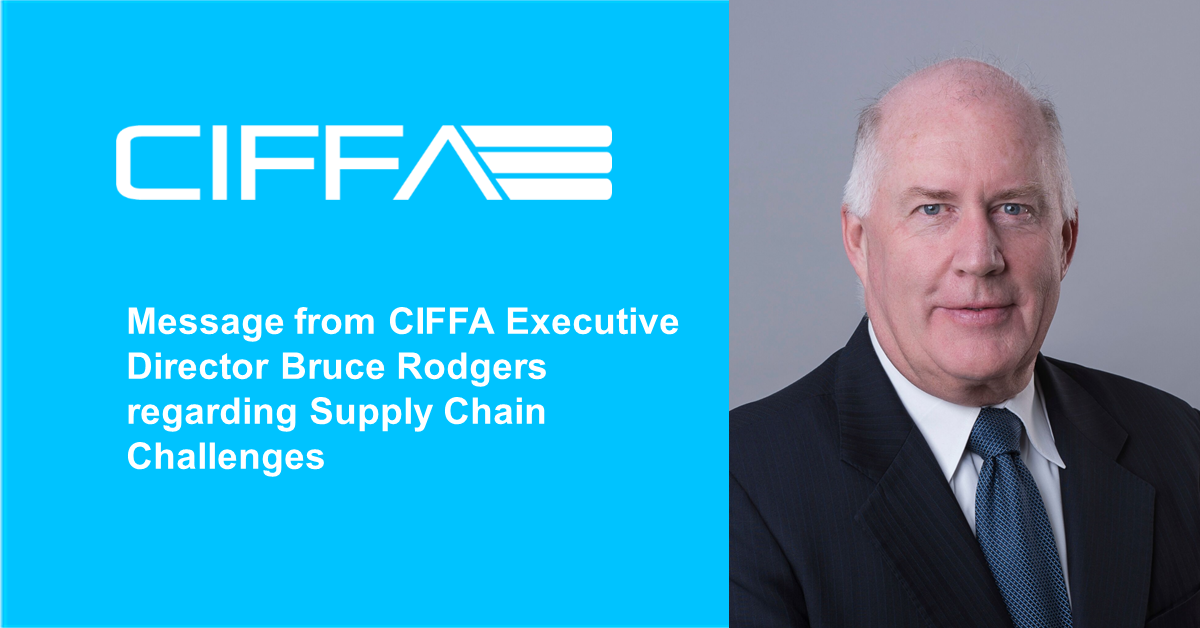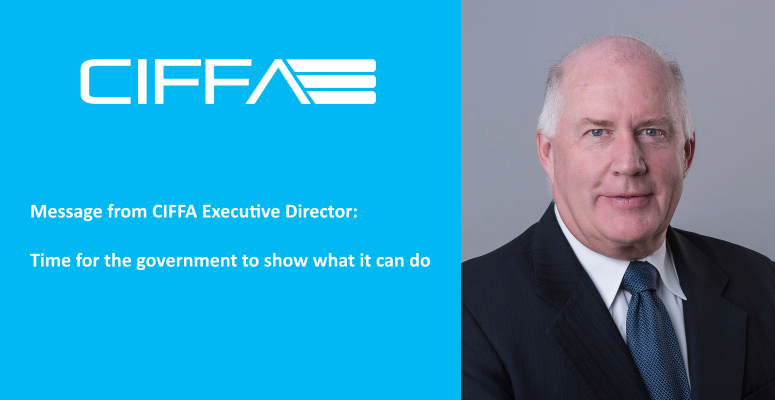
Message from CIFFA Executive Director Bruce Rodgers regarding Supply Chain Challenges
Over the past few weeks, CIFFA’s Secretariat office has seen increased concerns with the ongoing challenges of the supply chain. Members are asking for help and guidance to deal with rising/additional costs, significant delays and an overall lack of information.
CIFFA has also been contacted by government officials at both Federal and Provincial levels, seeking short-term solutions to the present situation. Our message has been both consistent and clear, that there are no short-term wins in this situation. Government awareness and interaction should have occurred several years ago. Many projects remain tied up in bureaucratic red tape, many of which would have lessened the burden felt by many today. The Port of Vancouver’s Robert Bank Terminal 2 expansion project and CN’s Milton Logistics Hub are two examples.
The situation, as most are aware, is both complex and complicated, one that involves many different stakeholders:
- Carriers – due to the lack of schedule integrity, retailers had to order product well in advance to ensure that store shelves were properly stocked
- Importers – having excess inventory, warehouses became full. Containers are either being held in off-site yard locations, or being repositioned to areas with additional capacity
- Economy – high interest rates have curbed consumer spending. In addition, with lessening COVID restrictions, we have seen a return of spending on leisure goods and services.
- Drayage – due to a declining labour pool, there are fewer drivers available. Longer wait times and hours of service have contributed to a reduction in driver turns.
- Ports – further congestion due to the rail metering volumes moving to Central Canada.
Recently, rail providers have made available off-site yard space to relieve congestion at the rail yards. While this will have a positive impact on spreading out the containers, resulting in additional capacity and improved pick-up times, the corresponding impact is increased costs and further confusion.
We have reports that in the U.S. drivers are leaving the long-haul sector and returning to local and drayage. This is a result of falling truckload rates and increased operating costs. Although we have yet to see a similar reversal in Canada, the contributing factors are similar.
CIFFA remains diligent in working with all stakeholders in the supply chain in order to improve fluidity and efficiency.
Although global complexities are a significant factor and cause of the current supply chain woes, Canadian supply chain stakeholders should not view this as an excuse not to work collaboratively to develop local solutions. We require all stakeholders to look at the broader picture and not solely at their bottom lines and shareholder returns. It will take a holistic effort, but one that is necessary for the betterment of the country.
Sincerely,
Bruce Rodgers Executive Director, CIFFA



